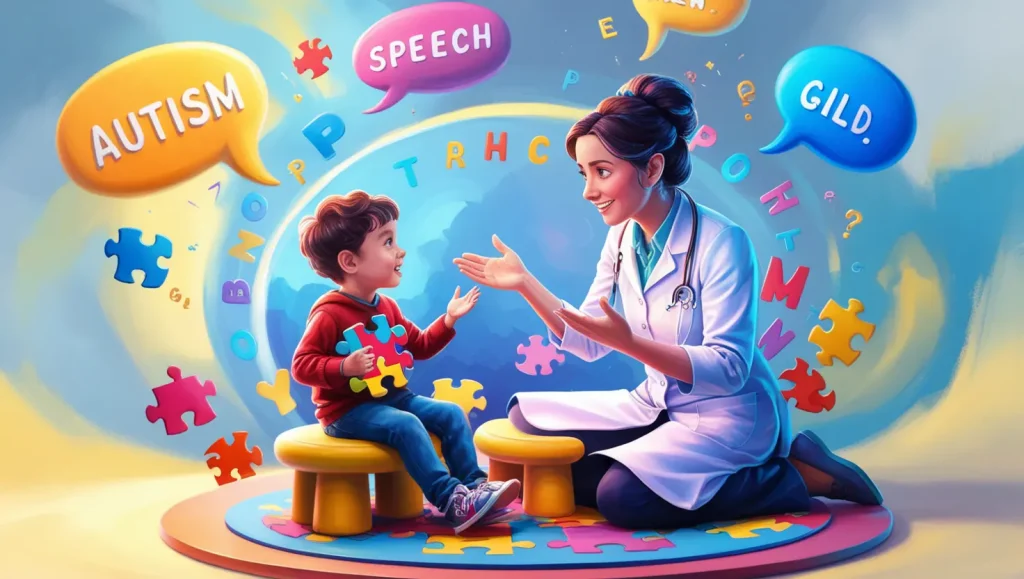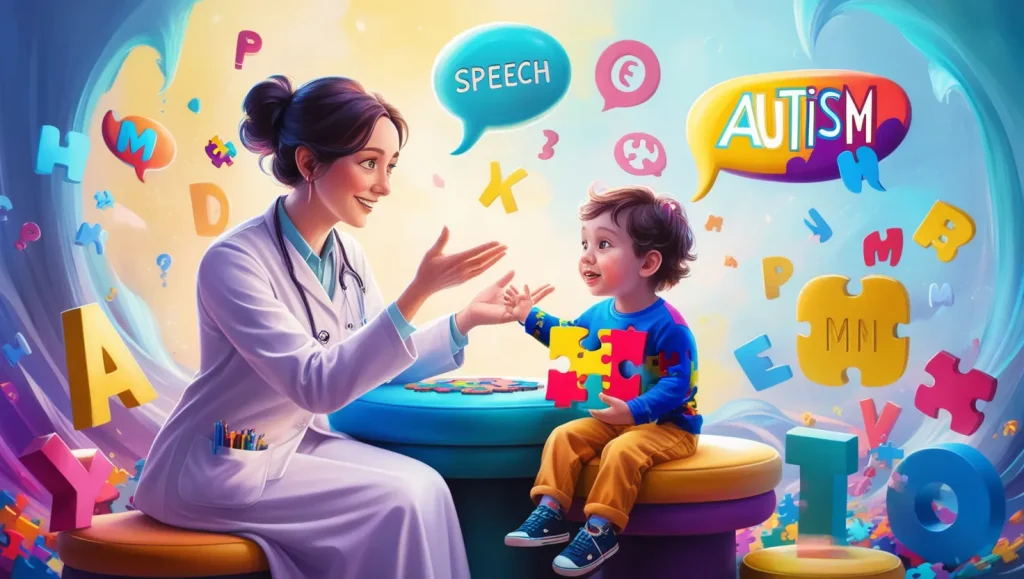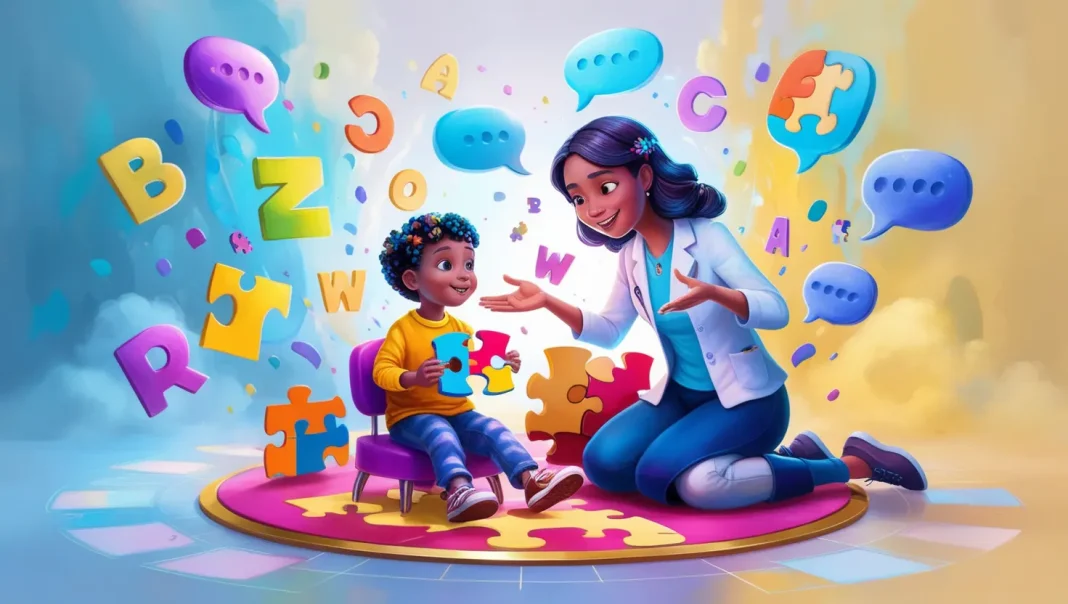Introduction to Speech Therapy for Autism
Speech therapy is like unlocking the treasure chest of communication for individuals with autism. It’s a specialized approach that helps bridge the gap between thoughts and words, enabling children and adults to express themselves better. But what does it really entail, and why is it crucial for those with autism? Let’s dive in
What is Autism?
Autism Spectrum Disorder (ASD) is a neurodevelopmental condition that affects how a person communicates, interacts, and processes the world around them.
Common Characteristics of Autism
- Difficulty in verbal and non-verbal communication
- Challenges with social interactions
- Repetitive behaviors or routines
- Sensory sensitivities
What is Speech Therapy?
Speech therapy focuses on improving communication abilities. It’s more than just talking; it’s about connecting.
How Speech Therapy Works
Speech therapy employs various techniques, tools, and strategies tailored to an individual’s unique needs, often through play, technology, and direct interaction.
Key Goals of Speech Therapy
- Teaching effective communication strategies
- Enhancing language comprehension
Encouraging social engagement

Why is Speech Therapy Important for Autism?
Speech therapy can be a game-changer for individuals with autism, helping them navigate a world heavily reliant on communication.
Addressing Communication Barriers
Many children with autism struggle with expressing their needs or emotions. Speech therapy helps to break down these barriers, one word at a time.
Enhancing Social Interaction
It’s not just about speaking; it’s about connecting. Therapy fosters better social skills, helping individuals relate to others more effectively.
Techniques Used in Speech Therapy for Autism
Augmentative and Alternative Communication (AAC)
Think of AAC as a toolbox filled with visual aids, speech-generating devices, and gestures to aid communication.
Visual and Auditory Tools
From flashcards to apps, these tools help reinforce understanding and encourage speech development.
Interactive Play and Role-Playing
Engaging activities like pretend play teach social cues and conversational turn-taking.
Benefits of Speech Therapy for Autism
Improved Communication Skills
Children learn to express their thoughts clearly, reducing frustration and misunderstandings.
Greater Emotional Understanding
Understanding emotions, both their own and others, becomes easier with guided practice.
Boosting Self-Confidence
Every word mastered is a step towards greater self-assurance.
Finding the Right Speech Therapist
Credentials to Look For
Ensure the therapist is certified and experienced in working with children on the autism spectrum.
Tips for Parents and Caregivers
Be involved! Attend sessions, practice at home, and maintain open communication with the therapist.
Challenges in Speech Therapy
Patience and Persistence
Progress can be slow, but consistency is key. Every small step counts.
Individualized Progress
Each child has their own pace, making personalized plans essential.

Tips for Practicing Speech Therapy at Home
Daily Communication Exercises
Incorporate fun, simple activities like storytelling or naming objects during daily routines.
Creating a Routine
Consistency helps reinforce learning and builds a sense of security.
Future of Speech Therapy for Autism
With advancements in technology and research, the future holds exciting possibilities like AI-driven tools and virtual reality environments to make therapy even more engaging
Conclusion
Speech therapy for autism is a powerful tool that transforms lives, opening doors to communication and connection. It’s not just about words; it’s about empowering individuals to share their world with others.
FAQs
- What age should speech therapy for autism begin?
Early intervention is ideal, often starting as early as two years old. - How long does it take to see progress in speech therapy?
Progress varies but can often be observed within a few months of consistent therapy. - Can non-verbal individuals benefit from speech therapy?
Absolutely! Techniques like AAC help non-verbal individuals express themselves. - What role do parents play in speech therapy?
Parents are crucial partners, reinforcing therapy techniques and practicing at home. - Is speech therapy covered by insurance?
Coverage depends on the policy, but many insurance plans offer benefits for speech therapy.



























